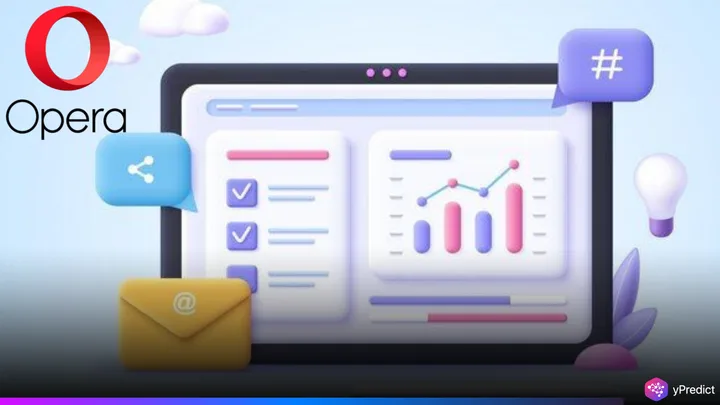
Opera, the Norway-based tech company behind the popular web browser, has launched a bold new product: Opera Neon. Announced at the Browser Days 2025 event in Lisbon, the AI-powered browser aims to perform tasks like coding, shopping, and even booking trips on behalf of users. Opera claims Neon can operate independently, even while the computer is shut down, by using cloud-based AI agents. Early testers saw the browser order flowers and fill out online forms with little help. The company calls this a big leap toward AI-driven web experiences, but it comes with caveats. Neon is currently behind a waitlist and will require a paid subscription when it fully launches.
AI in the Browser Seat, How Opera Neon Works?
Opera Neon is not just another browser with chatbot integration. It’s a full agentic AI system designed to perform tasks for users. Neon features three main buttons: Chat, Do, and Make. “Chat” allows users to interact with a web-based AI to ask questions or summarize pages. “Do” uses Browser Operator, Opera’s AI agent that can fill forms, book tickets, or make reservations.
Make is perhaps the boldest feature. Users can prompt Neon to generate code, build games, or write reports. According to Opera, this happens through a virtual machine in the cloud, allowing the AI to work even if your computer is off. “It’s not just about speed, it’s about focus,” Lexow said. “We want users to get back to the things they love.” The AI processes data locally using a web page’s structure, or DOM, which helps it understand complex forms and layouts better.
Opera Neon Early Tests Show Promise, but Glitches Remain
At Opera’s Browser Days 2025 event in Lisbon, the AI successfully ordered flowers for a journalist with little human input. The developers said this demo showed how far the technology had come. “It only needed one nudge to finish,” one team member admitted, noting early hiccups had improved. Still, questions remain about speed and accuracy. Past AI tools struggled with booking tasks or misunderstood web layouts.
Opera Neon hopes to fix those problems by running AI tasks through cloud-based virtual machines. This also enables multiple jobs to be processed at once. However, some critics say users may still do some tasks faster on their own. Opera claims Neon is not meant to replace its existing browsers. Instead, it’s a new option for users interested in AI agents. The company calls this shift “Web 4o”, a future web shaped by agentic tools that act on your behalf.
Will AI Browsers Replace Human Clicks?
Opera Neon could change how people interact with the web, but not without important trade-offs. If successful, it may reduce the need for manual browsing entirely for many routine tasks. But it also raises questions about transparency and control. What happens if the AI books the wrong ticket or fills a form incorrectly? Can users easily undo or correct mistakes? Opera says early adopters will help shape Neon’s future, showing its intent to build with community feedback. While Neon won’t replace Opera’s current browsers, it signals where AI in browsing could be heading next.
The Browser That Works While You Rest
Opera Neon points toward a future where web browsers are not just tools, but partners. It’s not perfect yet, and AI limitations still apply. But if the system matures, it could save users hours on everyday tasks. That might redefine how we think about time online. The bigger question is how much trust users are willing to place in a browser that acts alone. As AI pushes deeper into our personal and professional lives, the conversation around control, cost, and reliability will only grow. Opera Neon’s release may be limited now, but its impact could be broad.






